Discover the powerful health benefits of Moringa leaf powder, a natural superfood that enhances your daily nutrition and supports overall wellness. Explore why Moringa is essential for everyone.
Introduction to Moringa Leaf Powder
Moringa Oleifera, often hailed as a miracle plant, originates from the foothills of the Himalayas and thrives in tropical and subtropical regions. Its leaves, when dried and ground into powder, reveal a treasure trove of vitamins, minerals, and antioxidants, earning it the title of a superfood. This introduction sets the stage, exploring the origins of Moringa and why it’s considered a nutritional powerhouse.
Table of Contents
Unlocking Nature’s Secret: The Miraculous Benefits of Moringa Leaf Powder
Nutritional Profile
Moringa leaf powder is a dense source of vitamins, minerals, and amino acids. It contains:
- Vitamins: A significant source of vitamins A, B (B2, B6), and C, which are crucial for maintaining healthy vision, skin, immune function, and overcoming fatigue.
- Minerals: It’s rich in minerals like calcium, magnesium, iron, and potassium. Iron combats anemia, calcium is essential for bone health, magnesium supports muscle and nerve function, and potassium is vital for heart health.
- Antioxidants: The powder is loaded with antioxidants such as quercetin, chlorogenic acid, and beta-carotene. These compounds fight free radicals in your body, reducing oxidative stress and lowering the risk of chronic diseases.
- Amino Acids: Contains all nine essential amino acids, making it a rare plant-based source of complete protein, crucial for muscle repair, energy production, and mood regulation.
Health Benefits
- Boosts Immunity: The high vitamin C content helps in bolstering the immune system.
- Supports Healthy Skin: Vitamins A and E, along with antioxidants, help in maintaining healthy, glowing skin by combating aging signs and skin conditions.
- Enhances Energy Levels: Being rich in iron and magnesium, it helps in improving energy levels and combating fatigue.
- Supports Weight Loss: Moringa can enhance fat metabolism, aiding in weight loss and maintenance.
- Regulates Blood Sugar Levels: Chlorogenic acid helps in stabilizing blood sugar levels, making it beneficial for diabetics.
- Improves Digestive Health: The fiber content supports a healthy digestive system, preventing constipation and promoting gut health.
How to Incorporate Moringa into Your Diet
Integrating Moringa leaf powder into your daily diet is straightforward. It has a mild flavor, which allows it to blend well with many dishes. Here are some suggestions:
- Smoothies and Juices: Add a teaspoon to your morning smoothie or juice for an extra nutrient kick.
- Teas and Drinks: Steep Moringa powder in hot water to make tea or mix it into your favorite beverage.
- Soups and Sauces: Sprinkle some into soups and sauces for added vitamins and minerals.
- Baked Goods: Incorporate it into bread, muffins, or pancake batter to enhance their nutritional value.
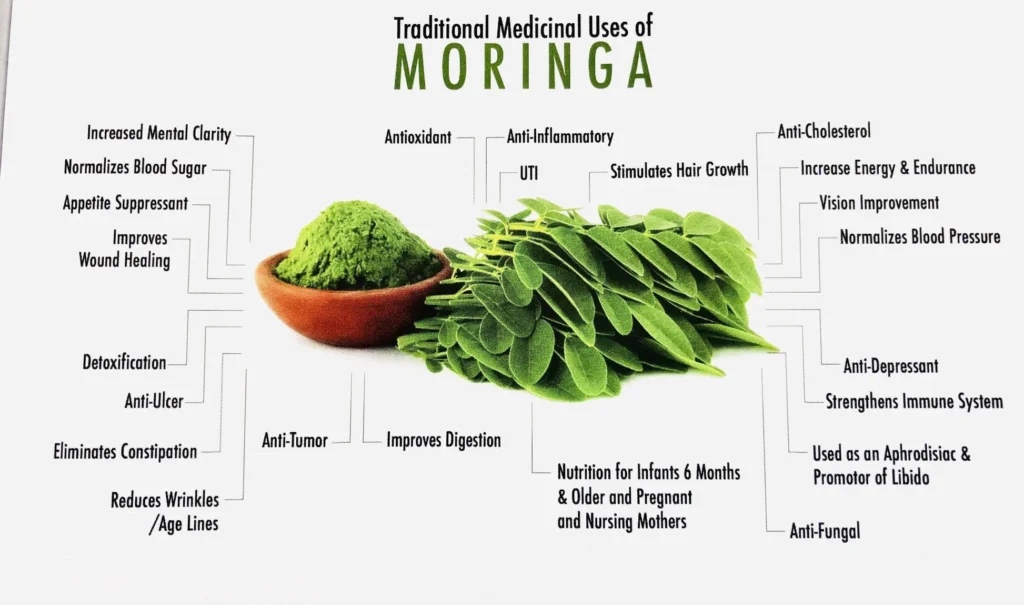
A Must-Have Superfood for Everyone
Exceptional Nutritional Value
Moringa leaf powder is a powerhouse of nutrition, offering a wide array of vitamins, minerals, antioxidants, and all essential amino acids, making it one of the most nutrient-dense foods on the planet. It contains:
- Vitamins A, C, and E, which are vital for maintaining healthy vision, skin, and immune function.
- Calcium and Magnesium, important minerals for bone health and muscle function.
- Iron, essential for blood health and combating fatigue.
- Potassium, necessary for heart health and blood pressure regulation.
Wide-Ranging Health Benefits
The benefits of incorporating Moringa leaf powder into your daily routine are vast and varied, including:
- Immunity Boosting: Its high vitamin C content strengthens the immune system.
- Anti-aging and Skin Health: Antioxidants combat free radicals, promoting youthful skin.
- Energy Enhancement: Iron and magnesium help in reducing tiredness and fatigue.
- Weight Management Support: It can aid in metabolism and fat burning.
- Blood Sugar Regulation: Chlorogenic acid helps stabilize blood sugar levels.
- Digestive Wellness: The fiber content promotes a healthy digestive system.
Versatility in Use
One of the greatest advantages of Moringa leaf powder is its versatility. Its mild, earthy taste allows it to be easily added to a variety of dishes without altering their flavor profile. Here are some simple ways to incorporate it into your diet:
- Smoothies and Shakes: A teaspoon can boost the nutritional content of your favorite drinks.
- Morning Teas and Lattes: Mix it into hot water or milk for a nourishing start to your day.
- Soups and Salads: Sprinkle Moringa powder on top for an extra dose of nutrients.
- Baking: Add it to bread, muffins, or cookies for a healthful twist.
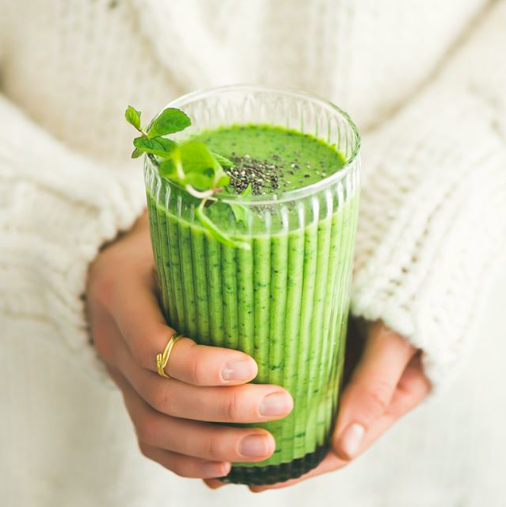
Making Moringa a Part of Your Life
Embracing Moringa leaf powder is more than just adding a supplement to your diet; it’s about integrating a holistic element into your lifestyle that supports your body’s health in multiple ways. Whether you’re looking to enhance your nutritional intake, support your physical health, or explore the benefits of natural superfoods, Moringa leaf powder offers a simple, effective solution.
Moringa Leaf Powder in Your Daily Diet
Starting Your Day with Moringa
Morning Smoothies and Juices: Kickstart your day by blending a teaspoon of Moringa leaf powder into your morning smoothie or juice. Its mild taste pairs well with fruits and vegetables, enhancing your drink’s nutrient density without overpowering its flavor.
Oatmeal and Breakfast Bowls: Stirring Moringa powder into oatmeal or sprinkling it atop breakfast bowls can add a nutritional boost to the first meal of the day. It blends seamlessly with both sweet and savory profiles, from fruit and nut bowls to avocado toast.
Moringa for Lunch and Dinner
Soups and Stews: Moringa leaf powder can be easily incorporated into soups and stews. Added towards the end of cooking, it enriches dishes with vitamins and minerals without altering their taste.
Salads: Elevate the nutritional value of your salads by whisking Moringa powder into your dressings. Alternatively, sprinkle it directly over the salad for an instant superfood upgrade.
Cooked Dishes: Whether you’re sautéing vegetables, grilling chicken, or baking fish, a dash of Moringa powder can be added to your spice mix. It’s a simple way to fortify your meals with extra nutrients.
Snacks and Beverages
Energy Bars and Bites: For a quick snack, blend Moringa powder into the ingredients of homemade energy bars or bites. Its presence amplifies the health benefits of these convenient snacks.
Teas and Lattes: Moringa powder can be whisked into hot water or milk to create a soothing tea or latte. Its subtle flavor makes it a comforting beverage option, suitable for any time of the day.
Desserts
Baking: For those with a sweet tooth, Moringa powder can be incorporated into the batter of cakes, muffins, and cookies. It adds a nutritional punch to desserts, making them guilt-free indulgences.
Frozen Treats: Blend Moringa powder into your homemade ice creams or popsicles for a nutrient-rich, refreshing treat that beats the heat with a healthful twist.
Tips for Incorporating Moringa Powder
- Start Small: Begin with a small amount and gradually increase to suit your taste and dietary needs.
- Maintain Balance: While Moringa is beneficial, it’s essential to maintain a balanced diet for overall health.
- Quality Matters: Choose high-quality, organic Moringa leaf powder to ensure you’re getting the most out of its health benefits.
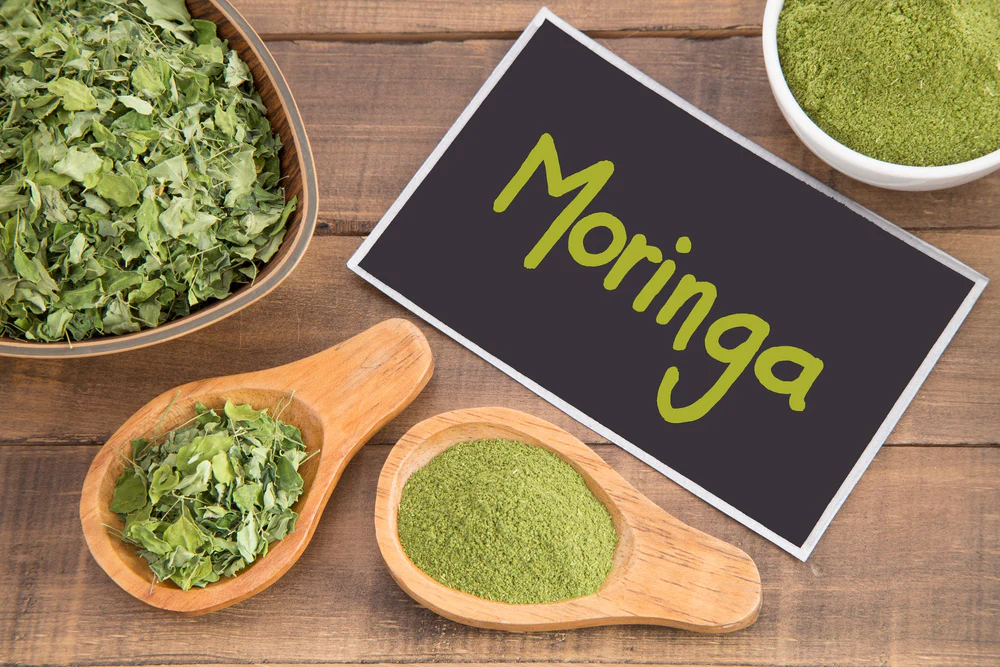
The Science Behind Moringa’s Health Benefits
Nutritional Powerhouse
Moringa leaf powder is celebrated for its dense nutritional profile. Scientific studies have shown that it contains:
- High levels of vitamins and minerals: Including vitamins A, C, and E, calcium, potassium, and iron, which are essential for maintaining healthy body functions and preventing micronutrient deficiencies.
- All essential amino acids: Unlike most plant sources, Moringa contains all nine essential amino acids, making it a rare and valuable source of complete protein for vegetarians and vegans.
Antioxidant Activity
One of Moringa’s most significant health contributions is its antioxidant capacity. Antioxidants are compounds that fight free radicals in the body, which are linked to chronic diseases and aging. Moringa leaf powder is rich in antioxidants such as:
- Quercetin: Known to help lower blood pressure.
- Chlorogenic acid: Which can moderate blood sugar levels after meals.
- Vitamin C and beta-carotene: That boost immune function and skin health.
These compounds help reduce oxidative stress and inflammation, which are key factors in disease prevention.
Anti-inflammatory Effects
Chronic inflammation is associated with many health conditions, including heart disease, cancer, and type 2 diabetes. Moringa contains isothiocyanates, which have been shown in studies to possess anti-inflammatory properties. By mitigating inflammation, Moringa can help protect against these conditions.
Cardiovascular Health
Moringa leaf powder may have benefits for heart health due to its antioxidant and anti-inflammatory properties, which help prevent lipid peroxidation and formation of plaques in the arteries. Additionally, its high potassium content helps keep blood pressure in check, reducing the risk of heart disease.
Blood Sugar Regulation
Several studies have pointed to Moringa’s potential in regulating blood sugar levels, making it beneficial for people with diabetes. The chlorogenic acid and isothiocyanates in Moringa may help increase insulin sensitivity and reduce glucose absorption in the intestines, thereby controlling blood sugar levels.
Improved Digestive Health
Moringa’s high fiber content can aid in digestion and prevent constipation. The fiber acts as a prebiotic, feeding beneficial gut bacteria and improving overall gut health. Moreover, its antibacterial properties may help inhibit the growth of various pathogens.
Enhancing Brain Health
The antioxidants in Moringa not only protect the brain from oxidative damage but also may support brain health in other ways. They can enhance brain function, reduce symptoms of depression, and even support memory and learning.
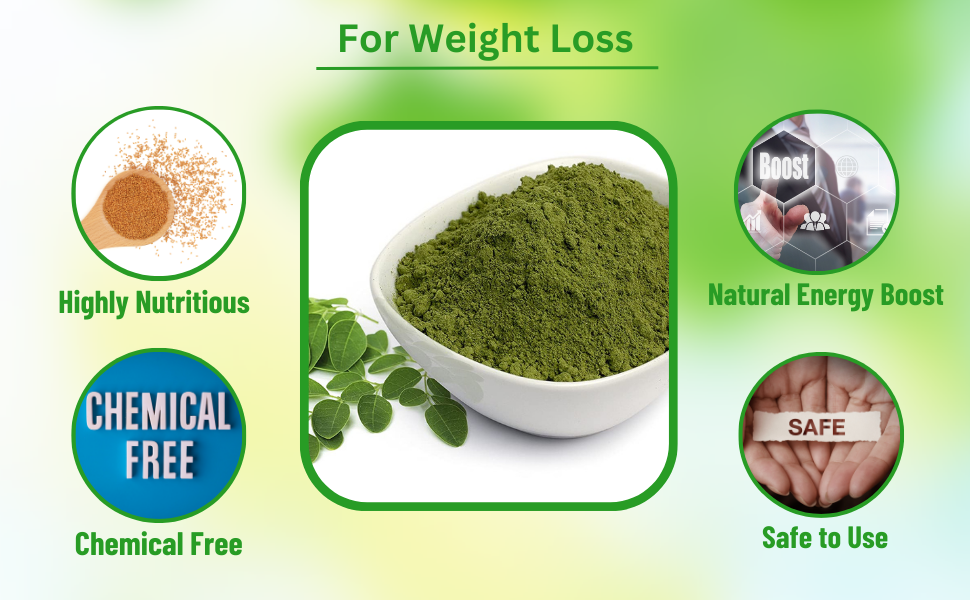
Comparing Moringa to Other Superfoods
Nutritional Comparison
- Moringa vs. Spirulina: Spirulina is a blue-green algae praised for its protein content and antioxidants. While spirulina is a great source of B vitamins and other nutrients, Moringa offers a broader range of vitamins, including vitamin A and C, which are not as prevalent in spirulina. Moreover, Moringa contains higher amounts of calcium and iron per gram, making it superior for bone health and anemia prevention.
- Moringa vs. Chlorella: Chlorella is another algae with a nutritional profile similar to spirulina. It’s known for its detoxifying properties due to its high chlorophyll content. While chlorella excels in detoxification, Moringa provides a more diverse set of antioxidants, which may offer broader health benefits, including reducing inflammation and enhancing immune function.
- Moringa vs. Matcha: Matcha, a type of finely ground green tea, is famed for its high levels of antioxidants, particularly catechins. While matcha is beneficial for heart health and metabolism, Moringa surpasses it with its wider variety of nutrients, including protein, fiber, and a more extensive range of vitamins and minerals.
- Moringa vs. Turmeric: Turmeric is celebrated for its anti-inflammatory and antioxidant properties, primarily due to curcumin. While turmeric is a powerful spice for combating inflammation, Moringa offers a more balanced nutritional profile, including essential amino acids and a higher concentration of several vitamins and minerals.
Health Benefits
Each of these superfoods has unique health benefits, but Moringa’s wide range of nutrients contributes to more comprehensive health improvements, including better digestion, enhanced brain function, and stronger immune defense. Moreover, Moringa’s anti-inflammatory and antioxidant properties are comparable to, if not exceeding, those found in turmeric and matcha.
Versatility and Accessibility
Moringa leaf powder is not only nutrient-dense but also incredibly versatile. It can be easily incorporated into smoothies, teas, and dishes, much like matcha and turmeric. However, its mild flavor makes it more adaptable than the distinct tastes of spirulina, chlorella, or even matcha, which can be overpowering for some. In terms of accessibility, Moringa is often more readily available and affordable than some of the other superfoods, making it an excellent option for a wide range of individuals.
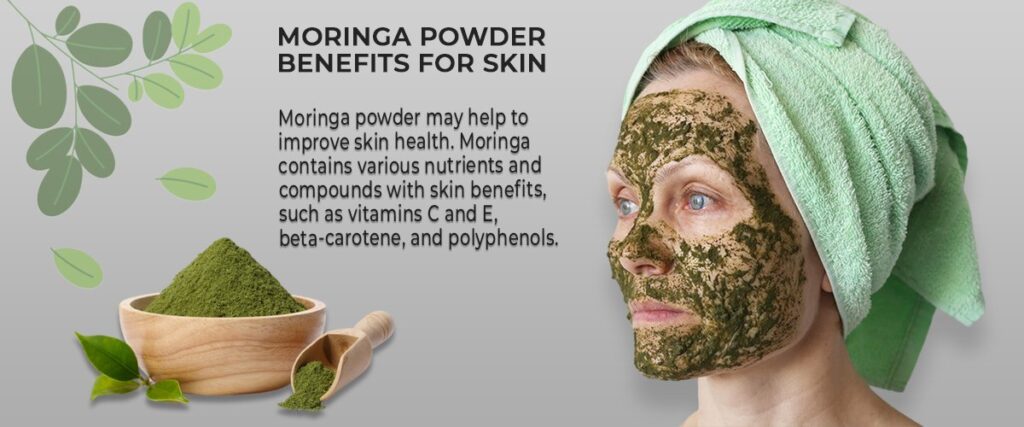
FAQs
- What makes Moringa leaf powder a superfood?
- How does Moringa powder compare to fresh leaves?
- Can Moringa powder help with specific health conditions?
- How much Moringa powder should I consume daily?
- Are there any side effects of taking Moringa powder?
- Where can I find high-quality Moringa powder?
Conclusion: The Future of Moringa as a Superfood
Reflecting on Moringa’s growing popularity and its potential to improve health and wellness globally, the conclusion offers final thoughts on integrating Moringa into your lifestyle, emphasizing its role in a healthier future.
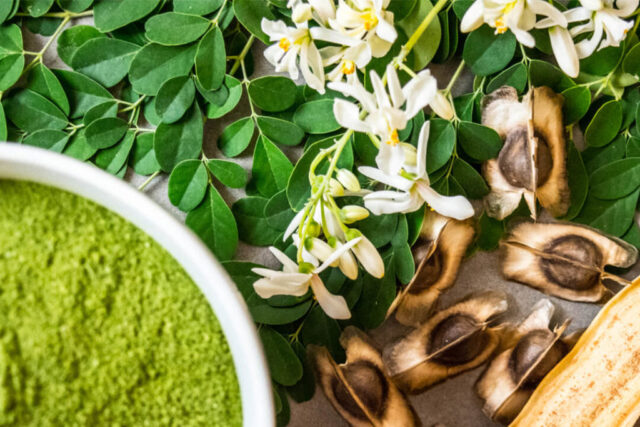


MOST COMMENTED
Animal-Based Proteins / Casein Protein / Dietary Protein / High-Protein Diets / Pea Protein / Plant-Based Proteins / Protein / Protein Deficiency / Protein Supplements / Proteins / Whey Protein / Whey Proteins
Is Protein Powder Safe for Teenagers and Children?
Animal-Based Proteins / Casein Protein / Dietary Protein / High-Protein Diets / Pea Protein / Plant-Based Proteins / Protein / Protein Deficiency / Protein Supplements / Proteins / Whey Protein / Whey Proteins
Unlock the Power of Proteins for Optimal Gut Health
Multivitamin
Total Health: Multivitamin for Active Lifestyles
Multivitamin
WellnessFusion: Complete Multivitamin Support
Dietary Supplement
Revitalize Your Health: The Magic of Red Yeast Rice Capsules
Foot care / Foot Health
Revitalize Your Foot Care Routine: Essential Tips for Optimal Foot Health
Foot Problem / Diabetics / Foot Health
Diabetics: Mastering Footwear Selection for Enhanced Foot Health and Ultimate Comfort
Exercises and Footwear Tips for Hammertoe Relief / Foot care / Foot Health / Foot Pain / Foot Problem / Hammertoes
Unlock Effective Exercises and Footwear Tips for Hammertoe Relief
Hammertoes / Foot Health / Foot Pain / Foot Problem
Unlock Relief: Essential Guide to Hammertoes Causes, Symptoms, and Treatments
Foot Problem / Foot Health
Revolutionize Your Recovery: Natural Remedies for Plantar Fasciitis – Fresh Home Keepers